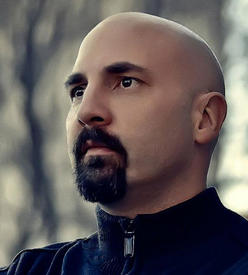Cardio vs. Weight Training

karenbobaren
Posts: 127 Member
Okay, I keep hearing different sides to this... I have heard that cardio burns more fat and that weight training builds on top of fat. I've also heard that weight training will shred the fat quicker so I am completely lost here!
My plan right now consist of more cardio than strength and once I lose about 30 lbs I was planning on increasing my strength and decreasing my cardio in order to tone up my muscles. Is that a bad plan?
My plan right now consist of more cardio than strength and once I lose about 30 lbs I was planning on increasing my strength and decreasing my cardio in order to tone up my muscles. Is that a bad plan?
0
Replies
-
Sounds like a great plan!0
-
Weight training does not build muscle on top of fat. It doesn't even necessarily build muscle, but it preserves your lean tissue so that your body can burn fat instead of muscle while you are eating at a calorie deficit. Without weight training, as you eat at a calorie deficit, your body will burn both lean tissue and fat.
If I were you, start weight training right away. The changes to your body are going to really surprise you. I lost weight while doing solely strength training, no cardio, and my body shape really benefitted from it.0 -
Let me put it this way...
For the first 2 years I went to the gym...I did only cardio. I went from a size 10 to an 8.
In the last year (maybe year and a half) of strength-training and cardio (with more focus on strength), I'm down from a size 8 to 4 (and I just had to replace all of my shorts with size 2s).0 -
Strength/ weight training is #1 in my book! Spent years on a freakin treadmill- no good. Started w/weights, down 61# and 50ish inches and from a 28 to a 16 in jeans. Changes your body composition big time!0
-
Your diet will be be your biggest factor with weight loss. In regards to exercise I would prioritize weight training since it helps maintain lean body weight while dieting and you will look better once the fat comes off. Treadmill and other cardio are fine but less beneficial.0
-
Do both and don't wait.......cardio burns more calories. Weights help your preserve lean muscle mass. Sounds like a win win to me.0
-
As long as you are doing a full body lifting routine a couple times per week, that will be enough to minimize the LBM loss from eating at a calorie deficit.
Basically, yes, your plan sounds good to me.
(without knowing any of your goals)0 -
Right now this is my routine: 15 mins strength, 20 mins cardio and sometimes 5 mins abs.
My current weight is 195, once I hit 170 I would like to decrease cardio to about 10 mins and add it to my strength training and of course add more weight.
But thank you all for clearing that up. I was getting so frustrated with all the mixed opinions.0 -
cardio burns calories, but if you follow MFP you should be eating those cals back, so in that case cardio does not help you lose weight, it allows you to eat more while losing weight.
Cardio is great for increasing endurance and strengthening your heart.
Strength training is great while in a deficit as it helps you retain the muscle you already have meaning you will be a lower body fat % while losing and at goal weight. It also increases bone density and makes everyday tasks easier. without strength training a large % of your weight loss will come from muscle than if you incorporate it.
I would suggest following a 3 day/week full body lifting routine and do cardio on your non lifting days2-3 times/week.0 -
everyone that has ever followed that plan (cardio now to lose weight, strength training to build muscle later) always end up saying the same thing...
"i wish i had started strength training sooner."0 -
I think that there is obviously an advantage to both. From what I've been told, it is best to strike a balance. You should be mixing up your workout routine anyway, so why not do cardio a few times a week then focus on strength training on the other days? Don't forget to throw in a rest day too!0
-
everyone that has ever followed that plan (cardio now to lose weight, strength training to build muscle later) always end up saying the same thing...
"i wish i had started strength training sooner."
Quoted for truth.... ask me how I know...lol
and because that is the best avatar ever.0 -
Right now this is my routine: 15 mins strength, 20 mins cardio and sometimes 5 mins abs.
My current weight is 195, once I hit 170 I would like to decrease cardio to about 10 mins and add it to my strength training and of course add more weight.
But thank you all for clearing that up. I was getting so frustrated with all the mixed opinions.
Don't put a time limit on your weight training. To say you're going to do 15 minutes of lifting and stop.. That's not how it works.
Instead, find a routine (one that's actually well thought out and structured) and stay in the gym until you complete it. I recommend a full body routine to start out for a beginner. You will see that 15 minutes is nothing. Expect to be in there, easily, at least triple that amount of time.
"Toning" is simply your muscles becoming more visible because you've lost fat. It's doubtful you're actually going to gain any muscle while eating in a calorie deficit.. but as others have told you - lifting now will help you preserve the muscle mass you currently do have, which is why you should start now. Save as much as you can from the very beginning.
But the most important thing for you would be to make sure you've got your diet down first. Learn how to eat properly. You'll never be able to outwork a bad diet.. meaning all the cardio and weight training in the world isn't going to make you lose weight if you're not eating as you should be (calorie deficit).0 -
Sounds like a great plan!
It would require exponentially more work for the OP to follow that plan and try to put muscle back on, rather than working to maintain the muscle mass now.....
OP, you should start yesterday.
When you're in a deficit you lose water, fat, and muscle. When in that deficit you can work through a progressive overload strength plan to maintain your Lean Body Mass. This means that you will lose mainly water and fat while working to maintain muscle. This means that as you lose the fat, you'll uncover the muscle that you have been maintaining, thus creating muscle definition. You're not growing it, just uncovering it.
Cardio if you like it, because it's good for you, and it allows you to eat more while staying in your deficit, mixed with a good lifting program, plus patience, and you'll get there.0 -
I want to have a more active lifestyle in general so I have fitness goals that include walking/hiking, cycling, swimming, etc. so I like to do plenty of cardio to make that stuff easier and more fun (esp. during the winter, when trails are closed and pools are chilly!)
I'm also loving weight training, it makes me feel strong and awesome when I can carry all the groceries up the stairs to our apartment in one trip!
So my preference is about 50/50!0 -
I agree with Capt. Apollo - everyone I know says they wish they'd started earlier.
I'd also add a few things:
* Figure out your TDEE and use that as your guide for how many calories you need to eat. Under-eating is not your friend, no matter how counter intuitive it seems. For example, my BMR -- which is what my body needs to function without ANY activity at all -- is 1500+ calories. If I ate 1200 cals per day, do you think my body would let go of an ounce of fat? No way. I promise, you can and will find story after story of people eating what sounds like boatloads of calories, doing a normal amount of weight lifting and cardio (= not every day, not hours per day - and sometimes that cardio is leisurely walks!), and losing weight.
* If you do start weight training, especially with heavy weights, plan on ignoring your scale for a while. That number will not be a good indication of your progress due to muscle gain, water retention, and/or a million other things. Instead...
* Take pictures and measurements when you start, then take new sets every month or so. Use these to see the ways your body has changed for the better.
I've been lifting heavy for about seven weeks, and I've "only" lost about four pounds, but people have noticed changes in my body and have asked if I've lost weight. Which means it looks like I've lost more than I have.
If you're not sure where to start, a couple good books are Starting Strength by Mark Rippetoe, and The New Rules of Weight Lifting for Women by Lou Schuler. Personally, I follow the StrongLifts 5x5 program (stronglifts.com) and love it. These are all beginner appropriate.
Good luck!
Courtney0 -
"Most weight loss occurs because of decreased caloric intake.
However, evidence shows the only way to maintain weight loss is to be engaged in regular physical activity.
To maintain your weight: work your way up to 150 minutes of moderate-intensity aerobic activity, 75 minutes of vigorous-intensity aerobic activity, or an equivalent mix of the two each week."
(The page explains moderate & vigorous.)
http://www.cdc.gov/healthyweight/physical_activity/index.html
To lose weight, you might have to do twice that amount of cardio. Work up to it gradually, maybe adding 1 minute per day.
Yes. Cardio at least 30 min x 5 days per week. Weights every other day, or every 3rd day.Do both and don't wait... cardio burns more calories. Weights help your preserve lean muscle mass. Sounds like a win win to me.
Cardio is the most efficient way to burn calories; weight training will help maintain muscle as you lose weight, as well as toning so you'll look great. Besides, for the same amount of weight muscle is slim & fat is fluffy so you'll lose inches too.
At least twice, maybe 3 times a week do a whole body weightlifting workout, however long it takes, 1-2 sets of 8-12 repetitions per exercise.Right now this is my routine: 15 mins strength, 20 mins cardio and sometimes 5 mins abs.
My current weight is 195, once I hit 170 I would like to decrease cardio to about 10 mins and add it to my strength training and of course add more weight
To build muscle, you want to be doing 70-85% of your 1-repetition maximum weight, but might have to start lower than that since you haven't been lifting.
When it's easy to 12 repetitions, increase the weight by 5 lb & go back to doing 8 reps.
Work both sides of a joint. For example, triceps & biceps, hamstrings & quadriceps, abdominals & back extensions.
http://www.myfitnesspal.com/blog/MKEgal/view/2014-06-08-exercise-6670800 -
Yes, if you eat fewer calories than your body needs to run you will lose weight.Figure out your TDEE and use that as your guide for how many calories you need to eat. Under-eating is not your friend, no matter how counter intuitive it seems. For example, my BMR - which is what my body needs to function without ANY activity at all - is 1500+ calories. If I ate 1200 cals per day, do you think my body would let go of an ounce of fat? No way.
If you're not putting enough calories in, the body will burn what it has.
The body has to fuel its chemical reactions, and to do that it prefers to burn carbs (glucose, then glycogen), then it burns fat, and as a last resort it burns muscle.
MFP says my BMR is 1700 cal.
MFP generally says I burn 400-800 cal in exercise every day.
For a couple months I've been eating 1650 or less per day, losing weight, and my doctors are happy with my health.
My doctor & dietician told me to eat 10x my healthy goal weight in calories and ignore exercise or "net" calories.
Do not eat back exercise calories! You're sabotaging your efforts. First, most people underestimate how much they eat. Second, most machines (including MFP) overestimate calories burned.0 -
"Shedding the fat" has little to do with what exercise you do. "Shedding the fat" is about energy balance. If you consume more energy (calories) than your body requires then that energy is put into storage for later use (fat). If you consume a balance of energy, you maintain the status quot. If you consume less energy than your body requires then it must compensate by dipping into stored energy (fat). Exercise of any kind as well as activity in general increases your body's energy requirements.
Cardiovascular exercise is outstanding for your cardiovascular system, endurance, and stamina. Resistance training is outstanding for developing and maintaining lean muscle mass as well as strengthening bones, tendons, ligaments, etc. A well balanced, general fitness regimen is going to incorporate both. More specific fitness goals would determine to what extent you would do them.0 -
This, this and this again!cardio burns calories, but if you follow MFP you should be eating those cals back, so in that case cardio does not help you lose weight, it allows you to eat more while losing weight.
Cardio is great for increasing endurance and strengthening your heart.
Strength training is great while in a deficit as it helps you retain the muscle you already have meaning you will be a lower body fat % while losing and at goal weight. It also increases bone density and makes everyday tasks easier. without strength training a large % of your weight loss will come from muscle than if you incorporate it.
I would suggest following a 3 day/week full body lifting routine and do cardio on your non lifting days2-3 times/week.
I'd also like to point out that weight training will shrink your body even if you aren't seeing movement on the scale. For that reason, grab the tape measure and track inches, too.
I started running in 2011. By early 2012, I was down to 122 pounds and a size 4. I had to stop running for awhile and just sort of lost focus, so the weight came back. Now I've been back at it, running 3 days per week and lifting on the days between. I currently weigh about 133 but my measurements are nearly as small as they were when I weighed 122. Instead of just having smaller thighs I have thighs that are firmer and I can see muscle movement when I walk.
More muscle mass = higher metabolism = eating more0 -
I am an exception to the rule. I started weight-lifting and my weight loss stalled (after a previously steady rate of 2lb loss per week). I was unhappy and demotivated. I wasn't making good progress with the weights because I was at a calorie deficit. I felt I had two goals and they were conflicting.
So, I quit the weight-lifting and went back to cardio and weight loss, reached my goal and felt great.
I'm now focusing on my weight-lifting at a weight, body size and body shape I'm happy with.0 -
I get so bored doing cardio so instead of plodding along on a machine for 30 minutes, I space out cardio bursts throughout my workout. I always start with 7-10 minutes on the bike or treadmill while doing bicep curls with free weights every other minute. It's sort of like interval-type training style. Then I go stretch, do abs, weights for a bit--then jump back on the bike or treadmill to get my heart rate up or I'll do a sprint or two on the elliptical or some step-ups, then back to weights, squats, pushups etc.
I get super bored doing one thing for too long and far prefer weights and calisthenics to cardio but I definitely want to maintain my heart health via aerobic activity.0 -
Lift first, and then do cardio. 45mins - 1 hour of lifting uses up glycogen storage. Wrap up with 15-30mins of cardio to burn fat energy.
1lbs of muscle burns roughly twice as many calories as fat in rest. 7-10 calories for 1lbs of muscle, and 2-4 per 1lbs of fat.0 -
In no case absent a bizarre medical condition does muscle exist over fat. Muscle is attached to bone and (subcutaneous) fat is stored under the skin. Otherwise, you'll either lose, maintain, or gain muscle mass - all of which depends on your diet and exercise regimen.
First things first, you're not going to gain muscle and lose fat at the same time, as they consider opposite calorie goals. Ever noticed a bodybuilder's caloric intake? Yeah. At just 160 lb you'd need an estimated 3,500-3,700 calories and 270 g of protein on lifting days. That's because, in addition to a lot of lifting work, it takes a lot of energy to repair and build muscle tissue. Thus, you need to maintain a calorie surplus to build and maintain muscle, but a calorie deficit to lose fat. That's why you should concentrate on fat loss first and muscle growth second.
However! That doesn't mean that you shouldn't weight train and that you should focus only on cardio. In fact, too much cardio could be sabbotaging your fat loss goals, particularly if you aren't monitoring your fitness. Our bodies adapt well to walking, jogging, and running - meaning they become more efficient at doing them - so you'll quickly get to the point at which you'll burn much fewer calories doing it if you don't keep your heartbeat up. Your body will also decrease your muscle mass in an effort to increase its efficiency, which you don't want. Anyway, though, strength training burns more calories over time because of the energy it takes to repair and/or build muscle. In addition, muscle requires more energy to run then fat, so increasing muscle mass increases basal metabolic rate.
Now, when I say strength training, I mean legit strength training and not cardio with resistance, i.e., high reps, low weight. You should shoot for whatever weight enables you to do 8-12 reps to failure, meaning that you physically can not do more without a 30-90 second rest period. If you can do more after 8-12 reps, the weight is too low. Conversely, if you can't get to 8-12, the weight is too high. You can work at extremely high weight with low (maybe four) reps, but that's how you build muscle, which isn't going to happen at a calorie deficit. The two sets of 8-12 reps to failure is strength training mode, which is what you want at this stage. What that does in this context, as someone else explained, is ensure that you don't lose too much muscle while losing fat - and you're going to lose some muscle on a calorie deficit.
But that's only part of it. Your nutrition is key. Not in itself, because the only thing that matters is achieving a deficit. And this us where I stress that healthy =! fat loss. "Eating clean" does not ensure fat loss, nor does "eating dirty" ensure fat gain. Hell, you can lose fat eating only big macs, soda, and sugar out of the bag as long as you stay under your deficit. Do I recommend that? No. Is that the path to health? No. But fat loss/maintenance/gain is a survival mechanism, period, and is based on calories, period. You're not going to lose fat with a 3,000 calorie diet of "clean" food, period. I highly recommend that you eat mostly "clean" food, however; my point is only that you can't expect fat loss simply because you switch to "clean" food.
Anyway.
There is no overall "cardio vs weight training." Ideally you should do both with an emphasis on strength training unless cardio is your passion. Either way, fuel up. Do your best to achieve your deficit with food, not exercise, and make up your calories up to your deficit. For examples, don't eat 1,500 calories and then burn 500. Attempt to maintain your deficit, especially on lifting days.
Ultimately, you're just going to have to track your results with multiple criteria and see what works for you. If you would like more info, nust ask. 0
0 -
(Can't figure out how to erase.)0
Categories
- All Categories
- 1.4M Health, Wellness and Goals
- 394.1K Introduce Yourself
- 43.9K Getting Started
- 260.4K Health and Weight Loss
- 176.1K Food and Nutrition
- 47.5K Recipes
- 232.6K Fitness and Exercise
- 437 Sleep, Mindfulness and Overall Wellness
- 6.5K Goal: Maintaining Weight
- 8.6K Goal: Gaining Weight and Body Building
- 153.1K Motivation and Support
- 8.1K Challenges
- 1.3K Debate Club
- 96.4K Chit-Chat
- 2.5K Fun and Games
- 3.9K MyFitnessPal Information
- 15 News and Announcements
- 1.2K Feature Suggestions and Ideas
- 2.7K MyFitnessPal Tech Support Questions




















